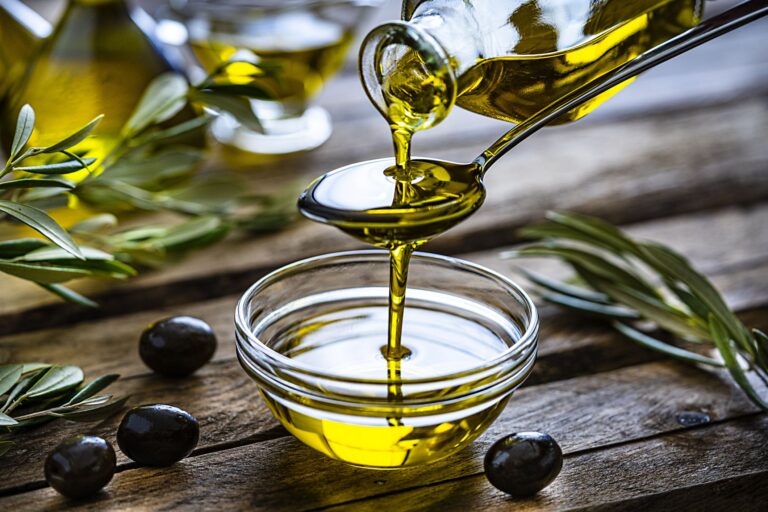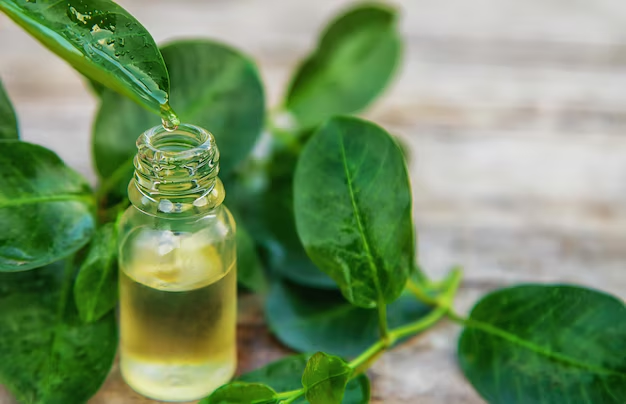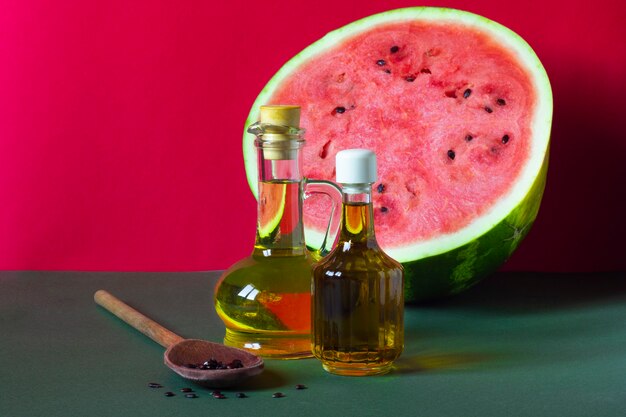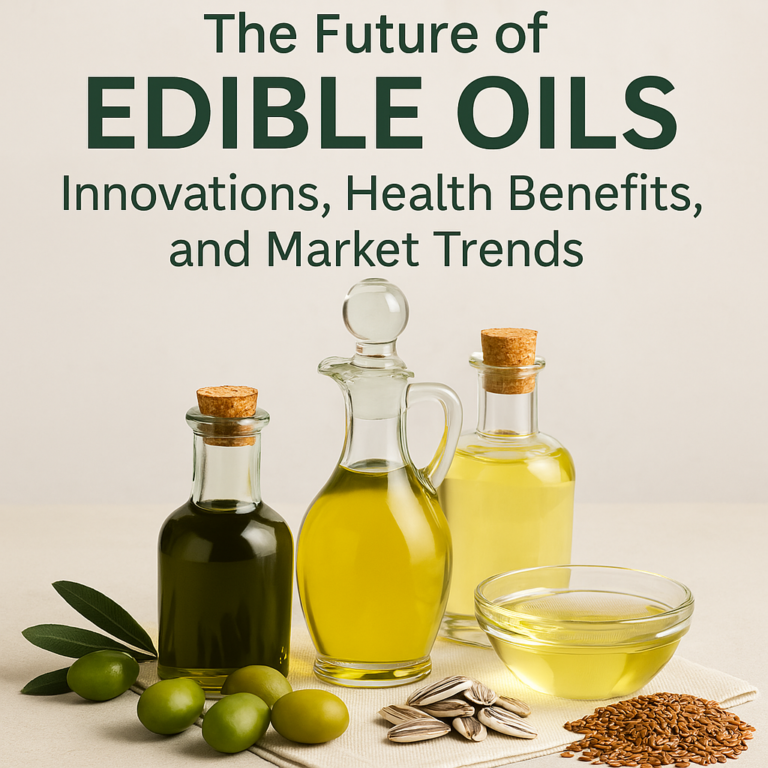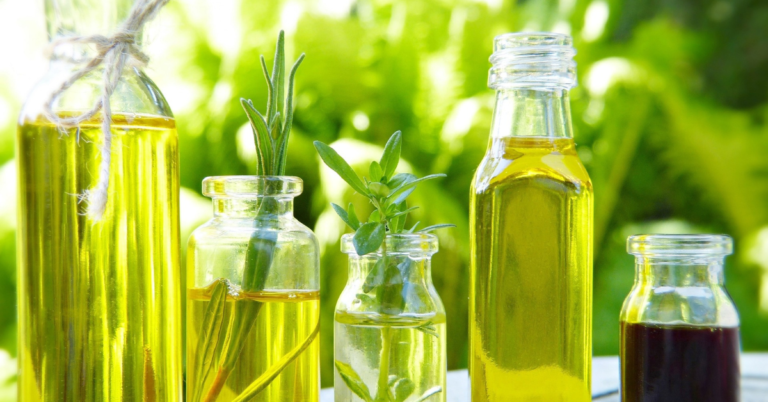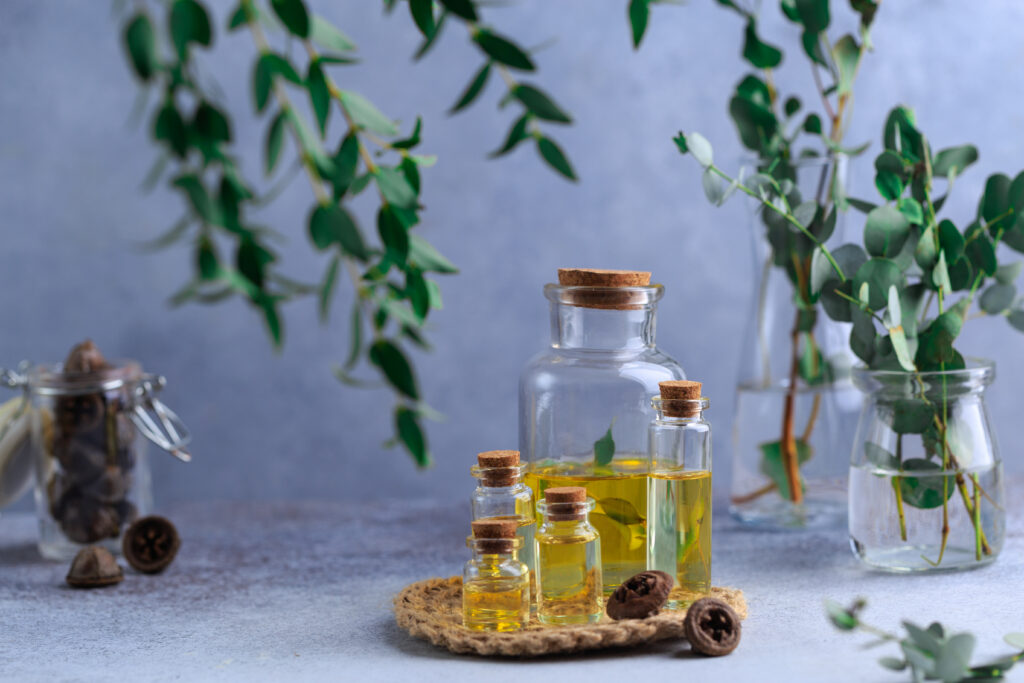
The sweet aroma of lavender was filling the air as Sarah applied a few drops of essential oil to her temples. After a long day of work, family, and other responsibilities, this simple ritual was her haven. Like Sarah, millions of people around the world are now using organic extract oils for their medicinal and health benefits. But what is behind this rising trend? What makes these oils unique in a market that offers many options?
The Evolution of Edible Oils and Organic Extracts.
In order to understand the current organic extract oil frenzy, we must take a historical journey. Oils from seeds, fruits, and nuts have been used for millennia not only to cook but also medicinally and cosmetically. The ancient Egyptians used cold-pressed oils on their skin as well as for mummifying. This aligns with the historical journey of edible oil, showcasing its importance in various cultures.
Presently, the organic extract oils market is experiencing a very high demand. Recently, it was found that the global market for essential oils is projected to be at USD 15.3 billion by 2027, and grow at a compound annual growth rate (CAGR) of 7.5% from 2021. This is due to increasing consumer awareness about natural and sustainable products and perceived health benefits from vegetable oils and their derivatives.Today, the organic extract oil market thrives with innovations in edible oil refining techniques, which have refined the process to enhance quality and preserve nutritional value
Defining edible oil and differentiating it from extract oils
Indicates large differences in the application and the methods used for refining them, though they both are products from natural sources. Edible oils are necessary components of food preparation and cooking; the different varieties are sunflower, olive, and coconut oils, among others. The types of edible oils include refined, cold-pressed, and virgin oils, each catering to specific culinary needs. Edible oils also play a pivotal role in gut health, with studies highlighting how edible oils influence your gut health by supporting digestion and reducing inflammation.
The organic extract oils are generally cold-pressed or steam-distilled so that they retain their curative properties. Lavender, tea tree, and eucalyptus oils are used more in aromatherapy, skincare, and the green cosmetics segment. What basically differentiates between essential oils vs extract oils is the difference in concentration levels as well as purpose.
Popular Reasons for Using Organic Extract Oils
1. Sustainability Wave
Consumers are increasingly finding that petrochemical oils carry unfavorable environmental implications. The sustainability of palm oil has become a debate topic that many are compelled to embrace greener, more environmentally responsive alternatives. Organic extract oils-that are synthesized without synthetic preservatives or severe processing methods-tend to correlate with this direction.
2. Environmental Impacts
Petroleum oil used in petrochemical oil production contributes to deforestation, loss of biodiversity, and heavy carbon emissions. On the other hand, organic extract oils are farmed using sustainable practices that give more attention to soil health and water preservation. Companies, therefore, change their practices based on the demand of the contemporary consumer who insists on knowing where it came from.
3. Cold-pressed oils are healthier
Cold-pressed oils are healthy because they contain many more nutrients and antioxidants than processed oils that undergo high-heat refining. For example, cooking oils ranked for their health benefits often feature cold-pressed options in the form of avocado and coconut oils for not only cooking purposes but also using them as skincare ingredients. According to research, these cold-pressing oils hold up to 50% higher antioxidants than refined oil; hence, improving health in the long run.
4. Focus on therapeutic benefit
The therapeutic potential of extract oils cannot be underemphasized. From stress reduction to improved quality of sleep, lavender and chamomile oil have become something of a common household staple. Furthermore, as holistic health aficionados increasingly discover and use health benefits of mustard oil for its proven anti-inflammatory and antibacterial values, these essential oils are starting to be widely used in individual wellness routines such as diffusers, massage therapy, and do-it-yourself skincare products.
5. Sustainable Beauty Growth
Growth in the sustainable beauty industry is fueled by oil extraction. Brands make their products with organic oils like argan and jojoba to cater to consumers interested in clean, green beauty. The oil nourishes the skin and has skin-preserving properties, thus eliminating the need for supplementation. For example, rose oil is worshiped as anti-aging, while marula oil is worshiped as valuable for its moisturizing benefits
6. Increased Awareness of Intestinal Health
The other area where interest is increasingly growing is connecting oils with gut health. Intensively studied these days is the way edible oils affect your gut health, suggesting that some types of oils are good for gut health and diminish inflammation, with olive and coconut oils being most popular. This made the demand increase for nutritious as well as gut-friendly oils.
Health and Environmental Benefits of Organic Extract Oils
Health Benefits
The best thing about organic extract oils is the extensive benefits for health. These include:
- Edible oils in gastrointestinal health: Coconut and olive oils improve digestive capabilities and reduce inflammation.
- Healing properties: Oils like peppermint and eucalyptus help soothe headaches and treat respiratory disorders.
- Health score of cooking oils: Olive oil is usually the first in lists of such rankings because it comprises high percentages of monounsaturated fats and antioxidants.
- Avocado oil benefits: It is rich in oleic acid, and avocado oil improves heart health, enhances nutrient absorption, and is beneficial for skin health when applied topically.
Environmental Impacts
The environmental impact of edible oil production has made consumers choose a greener alternative. Organic extracted oils, which are sourced from renewable botanical sources, have a reduced carbon footprint and are often manufactured using environmentally friendly processes. More stringent controls and technologies may come in the future of petrochemical oils‘ impact on the environment. In the short term, organic will continue to be the choice of conscious, environmentally conscious consumers.
Market Challenges
Why Oil Prices Are Rising
Why are oil prices rising? One of the most important challenges in the market for organic essential oils is high prices. Factors such as increased demand, shortage of raw materials and labor-intensive manufacturing processes increase costs. Especially in rare oils like rose and sandalwood. Furthermore, geopolitics and supply chain disruptions have had a profound effect on prices, causing consumers to weigh costs against perceived benefits
Storage And Shelf Life
Proper storage of edible oils is also very important, ensuring that freshness is maintained. Organic extract oils, however, deteriorate in light, heat, and air; thus, solutions in proper storage include dark glass bottles, so efficacy is guaranteed. Moreover, using oils well within their shelf life will enable a maximum output of therapeutic potential.
Coconut Oil vs Olive Oil: Popular Oils Compared
The most consumed edible oils include coconut oil and olive oil. These two, however, have differentiated characteristics and applications. Though olive oil is mostly suggested to be taken for cardiovascular health, coconut oil has become a hot favorite for the skin treatment owing to its antimicrobial features. Often, two edible oils have to be selected from each other depending on one’s choice or requirements. For instance, coconut oil is quite suitable for high-temperature-cooking conditions, but olive oil is perfect for salads and low-temperature-cooked foods.
Future of Organic Extract Oils
The future of organic extract oils looks promising, with advancements in sustainable farming and refining technologies. Researchers are exploring innovative methods to improve the yield and potency of these oils while minimizing their environmental footprint. As consumers become more educated about how petrochemical oils are refined and their ecological impacts, the shift toward organic alternatives is expected to accelerate
The market is also likely to see increased collaboration between traditional farmers and modern scientists. By combining age-old techniques with cutting-edge technology, the production of organic extract oils can become more efficient and accessible. Furthermore, as consumers become more educated about the environmental impacts of petrochemical oil, the shift toward organic options is expected to accelerate.
Conclusion
From the historical journey of edible oil to the rise of organic extract oils, it’s clear that these natural products are more than just a passing trend. They represent a shift toward healthier lifestyles and sustainable choices. As consumers continue to explore their potential, the market for organic extract oils is poised for significant growth.
So, the next time you reach for that bottle of lavender or peppermint oil, consider this: how can we further embrace the benefits of organic extract oils in our daily lives?
